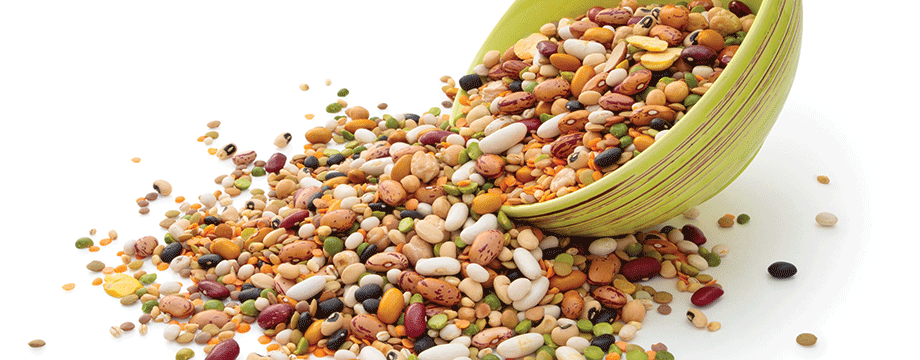Perfect proteins

What are the best sources of protein – for meat eaters, vegetarians and vegans? Rude Health magazine asks the experts
The role of protein
Protein is essential to the efficient running of the human body. We need it to produce enzymes for digestion, absorption and energy metabolism. It keeps our bones and muscles strong, maintains healthy skin and hair and balances hormones. It produces energy and assists with the metabolism of fats and carbohydrates.
“The best sources of protein are usually animal products like meat, fish, eggs and dairy,” says Liz O’Byrne, a nutritional therapist who works with health store the Aloe Tree in Ennistymon. “Eating animal products is the easiest way to ensure adequate protein, however you can still be a healthy vegetarian or vegan.”
“Generally the best sources of protein are from animal sources, preferably lean meats like turkey, fish, or lean cuts of beef,” says Angela McGlanaghey of Simple Simon in Donegal town. “Some dairy products are high in protein as well but may also be high in fat.”
Veggie options
“As a vegetarian, eggs and dairy might still be an option or alternatively, all nuts and seeds (including pastes like nut butters, tahini and hummus),” says Liz O’Byrne. “Beans and all bean products are good sources of protein but ensure they are well prepared (soaked/cooked) to avoid potential digestive issues. Soy bean products can be great (think tofu) but avoid heavily processed products and GMO products for optimal health. All grains and vegetables contain a certain amount of protein.”
“If you are a vegetarian it can be a little more tricky, but generally eggs, nonfat greek yoghurt and low fat cheeses are a great source of protein,” says Angela McGlanaghey. “If you are vegan lentils, chickpeas and other pulses naturally are high in protein and also there are soy products such as tofu or meat alternatives which are high in protein.”
Are you getting enough?
“To ensure you are meeting your protein requirements for your size/sex, consider using an app (for a few days) which allows you to enter your individual personal details and daily food consumed and it will easily give you the figures,” says Liz O’Byrne.
“Women should consume 0.75g of protein per kg body weight and men should consume 0.85g per kg body weight. If you feel you are not meeting the guidelines, consider using a protein powder (vegetarian and vegan options available). These can be purchased at your local health food store and added to smoothies or porridge daily.”
“If you think you are not getting enough protein you could consider supplementing your diet with a vegan protein powder or a good quality whey protein if you’re not a vegan,” says Angela McGlanaghey.
Missing nutrients
The main nutrients vegetarians and vegans may miss from not getting their protein from meat include iron and vitamin B12 which helps with iron absorption.
Good sources of iron include egg yolk, dried fruit, beetroot, sweet potatoes, peas, molasses, pumpkin and pumpkin seeds, wholegrains, nutritional yeast flakes and spirulina. B12 is harder to find in non-meat foods, but is in chlorella. If a vegetarian is feeling more tired than normal, they might need to take a supplement.
Include more protein
- Go nutty - add nut butters to a smoothie, spread on crackers or toast or mix into your porridge.
- Use quinoa for salads - one cup of cooked quinoa contains more than 8g protein.
- Super seeds - 2tbsp hemp seeds contains 11g protein. No need to grind prior to eating them.
- Miso - a good source of protein and packed with vitamins and minerals.
- Dairy-free - soya, almond and coconut yogurts don’t contain as much protein as dairy-based yogurts, but you can add your own nuts or seeds to them to increase the protein profile.
More Rude Food articles...
Articles from our latest issue...